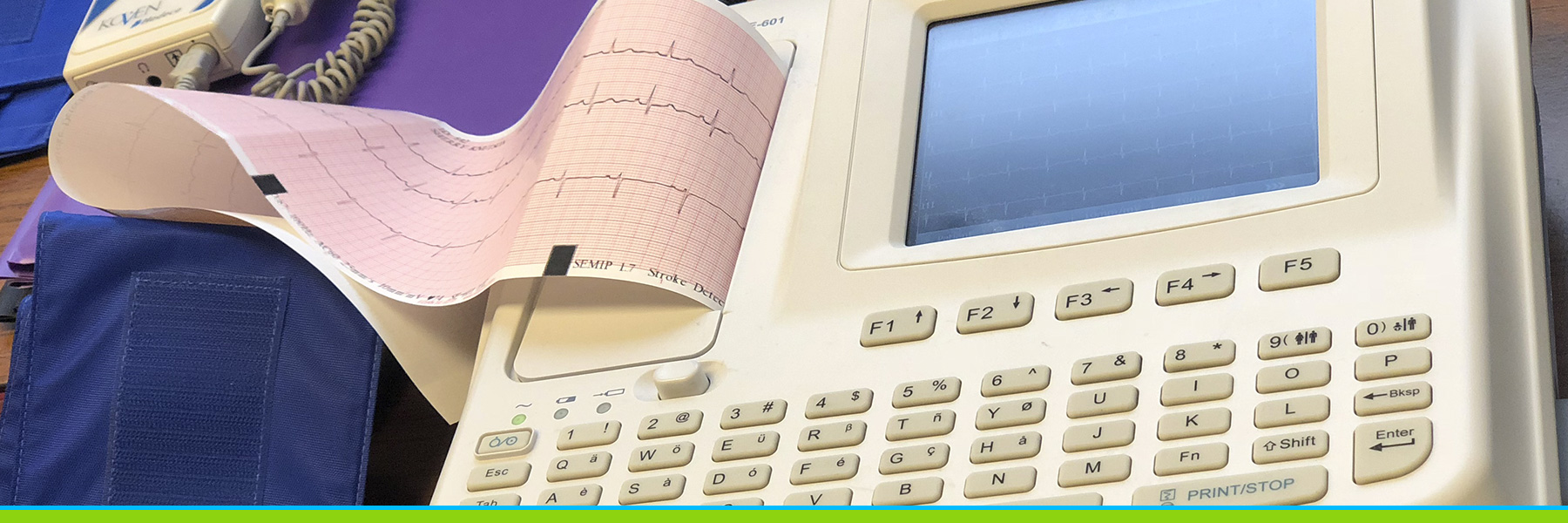
![]()
AFib, or atrial fibrillation, occurs when the heart’s chambers aren’t beating together as they should. Specifically, the heart’s two upper chambers get out of sync with the two lower ones. AFib can cause all sorts of complications including lightheadedness, shortness of breath, nausea, chest pain and even stroke. To really understand what’s happening in people with AFib, it helps to understand the basics of the cardiovascular system and how the heart works in tandem with the lungs to get your body the oxygen it needs to function.
Your heart is made up of four parts: The right atrium and ventricle and the left atrium and ventricle. Oxygen-poor blood goes in the right side of your heart where it gets oxygen from the lungs and then oxygen-rich blood goes out the left side to the rest of your body. It’s pretty amazing that your body does this without you even having to think about it. This is also why your heart beats faster when you exercise since your body is using more oxygen than normal and has to work harder to keep up.
So, when everything is working as it should, your heart coordinates the pumping of its four chambers to smoothly get oxygenated blood throughout your body. But what happens when this finely-tuned machine starts losing its rhythm?
AFib EKGs are among the easiest tests to perform. There are no needles or uncomfortable pressure bands and patients aren’t required to change into a hospital gown or other medical clothing. The test is conducted by attaching electrodes (small pads connected to wires) to the patient’s wrists and ankles. These electrodes are used to take readings only and don’t actually output any electricity.
Once the patient is comfortable, a trained technologist takes a reading of heart activity for about 15 minutes. Once the test is completed, results are printed out and mailed to the patient’s home address along with an explanation of everything the technician found.
One important thing to note about AFib is that the signs can come and go. Even if your results are normal, you should still go see a doctor if you are experiencing the symptoms of AFib. To be clear, you should go see a doctor if you are having chest pain of any kind, regardless of other symptoms. These could be signs of something serious and can only get worse if not diagnosed and treated.
If your results come back positive, don’t panic. Remember, there are lots of people living with AFib and aren’t even aware they have the condition. Early on, the irregular heartbeat may come and go and symptoms may be less severe. Surprisingly, 30% of those with AFib have no symptoms at all. It is completely possible to have AFib and live a full, healthy, normal life. However, even if you are experiencing no symptoms, it is very important to monitor your health situation and do what you can to improve it.
The good news is that in most cases, AFib is treatable. Like many conditions, the earlier you catch it the more your doctor can do to help. For some people, a simple prescription medication does the job of keeping it under control—blood thinning drugs can help prevent complications.
In more severe cases, a cardiologist can discuss the different procedures available.
These are the most common risk factors for AFib:
30% of people with AFib experience no symptoms at all.
People with risk factors should receive a peripheral arterial disease screening annually.